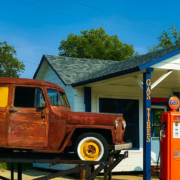Do you know one of the most common ways to make your money work for you? Here in the United States, it is to invest in a rental property. Homeowners begin to realize fairly quickly this opportunity. They realized that purchasing a property and renting it to another is a great way to earn passive income. This is without having to perform that many day-to-day tasks. We will talk more about 1031 exchange rental properties in this article.
Of course, rental properties do not always pan out the way that some land and building owners had expected. Some properties may have trouble acquiring consistently paying tenants. Other assets may be better off sold for a tremendous amount of money.
With a large sale, comes large taxes. If you plan to sell your rental property, then it is important to be aware of the possibility of a 1031 exchange. This is one of the smart tools that many savvy investors are using. In this article, we will outline the steps necessary to 1031 exchange rental property and maximize the potential for reinvesting your funds.
How to Sell Your Rental Property
Of course, you can 1031 exchange rental property only once the property is sold. Rental properties are not by definition rental properties. Planning to sell your rental property to a new owner? Then they may live in the space part or full time without continuing the legacy of leasing out space.
With this in mind, coastal areas and vacation destinations are full of short-term rental properties. Whereas most American cities have long-term rental properties looking for monthly tenants. This can be in the residential, commercial, and industrial spaces.
With all of this in mind, there are essentially an unlimited amount of ways that you can go about selling your rental property. The secret is to find the right buyer and put the property in front of as many potential investors as possible. Today, this is most commonly useable by taking advantage of online retailers, specialty real estate agents, and property auctions
Determining the Value of a Rental Property
Depending on the type of property, a rental space can have a tremendous range of values. Rental properties are essentially a sum of their parts, but also have a lot of external factors to consider when putting a price tag on a personal asset.
In most instances, the value of a rental property is determinable by:
- The size of the property
- Number of buildings and building types
- Property leasing history (short vs. long term)
- Current physical condition
- Market trends
- And more
Of course, the true value of your rental property is only the amount that someone is willing to pay for it. Smart bargaining and demonstrated income potential will serve as allies when putting your rental property in the eyes of serious buyers.
In some cases, existing tenants may have an interest in purchasing the property that they are currently leasing. While this is saving them a ton of time and cost on moving, selling to existing renters is usually done so at a discountable rate if the relationship is strong thus far.
Taxes Paid on the Selling a Rental Property
Rental property sales are typically for a lot of money. Unfortunately, this means that rental property sales generally come with a large amount of taxes paid on the income generated from the financial exchanges. While landowners are no stranger to paying property taxes, most expenses applied to the sale of a rental property are one-time-only. These include:
- Depreciation Recapture
- Federal Income Taxes
- Capital Gains Taxes
- Sales Taxes
- Local Taxes
- And More
With governments taking their piece of the pie, it is not uncommon to pay as much as 40% in taxes on the sale of a large rental property. Some of this is avoidable, however, if taxpayers choose to utilize a 1031 rental property exchange.
1031 Exchange Rental Property
Rental properties are sellable using a 1031 exchange. This is an IRS procedure to eliminate the partial or total amount of capital gains taxes on the sale of private property. By trading up for another large investment, taxpayers’ capital gains taxes are deferrable if they are reinvesting the proceeds from a rental property sale into a new kind of asset.
As with most governmental dealings, 1031 rental property exchanges can be painstakingly detail-oriented with paperwork and deadlines to fill out and meet with precise requirements. Because of this, we strongly recommend that both new investors and experienced wealth managers use a 1031 exchange intermediary to make sure that everything is done correctly.
Rental Properties Like-Kind Properties
First, rental properties must go through the exchange for something that is “like-kind” for a valid 1031 exchange. Thankfully, the IRS views rental properties in the same what that they do most other private assets. For this reason, rental properties can be exchanged for
- Commercial Buildings
- Gas Stations
- Shopping Malls
- Apartments
- Homes and Condos
- Water and Ditch Rights
- Mineral Rights and Royalties
- And more
1031 Exchange Rental Property – Timeline
Once a rental property is finally sold, then taxpayers have 180 days to purchase a new asset to qualify for a 1031 exchange. Before this, at least one property must be identified (but not necessarily purchased) within 45 days of the sale.
For additional requirements, please see our 1031 Exchange Rules and Requirements Page.
What to 1031 Exchange Rental Properties For
At the end of the day, there are a lot of different ways that you can reinvest the funds from a rental property sale. However, the United States is one of the few countries that permits taxpayers to invest in might rights.
By purchasing mineral rights, you can become the owners of the subsurface of a property. With this, you can enter into an oil and gas lease, which allows energy companies to extract and sell resources from your property. In doing so, mineral rights are useable to establish another great passive income stream, from monthly mineral royalty payments.










